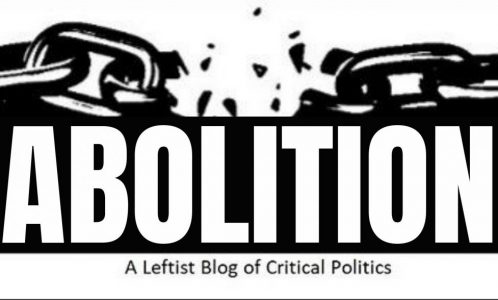John Clarke, former major organizer for the Ontario Coalition Against Poverty (OCAP), recently posted this on Facebook:
If you injured your arm and went to the hospital, you’d be quite surprised if the doctor noted the swelling and pain but refused to consider the possibility of a broken bone. Yet, when it comes to the workings of society, we are trained and encouraged to disregard underlying factors and the way things interconnect.I could give many examples but let’s take the ongoing persecution of poor and racialized communities by the police. It is frequently suggested that this can be overcome by different recruitment or training methods. These considerations, however, are entirely secondary. Police behaviour is primarily determined by the role they play and the social order they serve and protect. They simply aren’t going to become agents of social justice because they are enforcers for an exploitative society.If we appreciate the nature of policing and the context in which it takes place, we won’t waste time on futile dialogue and efforts to change the nature of the beast. We will mobilize to try and reduce funding for the police and place limits on their powers, without any illusions we can turn them into benevolent protectors.That’s one example but it can be expanded to any of the issues we face and that we are called upon to respond to. To understand, we must look below the surface and consider things in context.
Shouldn’t that institution be thoroughly transformed, by political struggle, into a more humane, limited and less autonomous one? How can this happen if it is simply abolished, or if criminal activity such as murder and theft, that often targets working class people (yes, working class people have personal property that can be stolen), is no longer illegal or goes unprosecuted?
Note the assumption that the courts and the police are somehow very effective in protecting personal property and preventing murder.
Racism exists in our society, and it certainly can serve the short-term interests of some sections of the working class by reducing or eliminating competition from other workers. Should we aim at transforming racism “by political struggle, into a more humane, limited and less autonomous” social institution? Or should we aim at abolishing it?
In any case, some members of the working class do steal the personal property from other members of the working class–and they should not (although there are undoubtedly many mitigating circumstances that need to be taken into consideration here). And some do murder some members of the working class–and they should not. Do these facts legitimate the continued existence of the police as a social institution designed by its very nature to maintain the order of oppression and exploitation characteristic of the domination of employers (see Employers as Dictators, Part One)?
The police, whether armed or not, have the legal right to use force–they have a monopoly of this force. Mr. Rosenfeld assumes that the call for abolishing such a monopoly is absurd. That, however, is what a socialist society would involve–a return of the power of doing things to people in their own hands. A movement to achieve this can arise in the present and not in some distant future.
Mr. Rosenfeld denies this:
It is one thing to envision what a future socialist and decolonized society might look like in 100 years and strive to move in that direction. But to talk as if the necessary political and social conditions of such a society exist at this moment is to fly in the face of reality. And, once again, it takes the struggle to transform or democratize these institutions off the agenda.
I wonder how it would be possible to “transform and democratize” racism? Mr. Rosenfeld seems more of a defender of the police than a critic.
One final point: The quotes of Rosenfeld’s views are drawn from an article he wrote. The title of the article is: https://canadiandimension.com/articles/view/reform-and-transform-police-abolitionism-and-sloppy-thinking , which is response to another article published on April 12 in the same magazine, written by James Wilt, Abolishing the police is the only reasonable response to Winnipeg Police killings. Wilt argues that the police cannot be reformed but must be abolished since their function is essentially repressive, and that essential function is sufficient for demanding its abolition.
Is not Rosenfeld’s article provocative? He accuses those of advocating the abolishment of the police with sloppy thinking. Is his claim that we need to aim to transform the police, to humanize it, in direct contrast with Clarke’s views? Which view expresses sloppy thinking?
I have yet to see any further articles written by Rosenfeld on the topic of the nature of the police and what to do about it.
